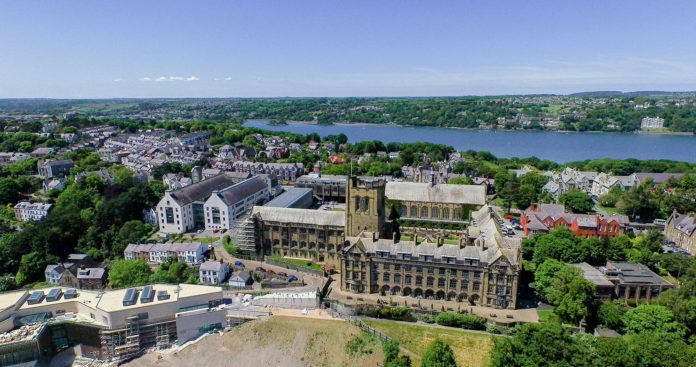An additional £1.5M of EU funding from the Welsh Government allows marine renewables research to continue in Welsh waters until 2022.
Specifically, the funding boost extends the SEACAMS2 project, which supports developing economic opportunities in Low Carbon, Energy and Environment through specialisation in commercial application of research and innovation in marine renewable energy, climate change resilience and resource efficiency in Wales.
The £17m project, a partnership between Bangor University and Swansea University, is part-funded by the European Regional Development Fund and focuses on the convergence region of Wales.
SEACAMS2 director, Professor Lewis Le Vay at Bangor University, commented on the announcement: “Wales is well-placed to be a world leader in the development of low-carbon energy generation from its coastal and offshore waters.
“This new funding is an exciting opportunity to maximise the benefits of SEACAMS2, which since 2015 has been helping to unlock the potential of marine renewable energy through collaborative research partnerships with the Welsh renewables industry.
“We are now working to deliver a range of additional collaborative research and innovation projects that can help support growth in the marine economy during this critical period for economic recovery.”
The marine renewable energy industry has been quick to identify Wales’ ‘significant’ potential marine energy resource.
Along the Welsh coast are regions with high tidal ranges (for tidal lagoons), fast tidal currents (for tidal stream energy), and waters exposed to considerable wave action (for wave energy devices).
Professor Kam Tang, Principal Investigator for SEACAMS2 at Swansea University, commented: “This allows us to continue our partnership working to support the marine renewable and goods and services sectors across Wales.
“The funding will enable us to deliver projects including product development support, tidal energy modelling and collecting the environmental evidence scientific data for innovation and de-risking.”
A multi-disciplinary team of marine scientists on the SEACAMS2 project are working with marine renewable energy enterprises in Wales, conducting collaborative Research, Development & Innovation initiatives.
As part of this, new data are also being gathered from a system of comprehensive coastal observatories – instrumented benthic landers and moored platforms – deployed in coastal regions identified as potential sites for marine renewable energy developments.
Counsel General and Minister for European Transition, Jeremy Miles, commented on the announcement: “Generating energy from renewable sources is not only vital in creating a low-carbon economy and contributing to the global challenge of climate change, it also provides Wales with a real opportunity to be at the forefront of a major emerging industry.
“This investment further highlights the importance of securing replacement funding from the UK Government to support growth and jobs in Wales following our exit from the EU.”
Jess Hooper, Marine Energy Programme Manager at Marine Energy Wales, added: “We welcome the extension to SEACAMS2 – the collaboration that this facilitates between industry and academia is key to bridging the gap between innovation and research and aiding marine renewable companies in answering some of the unknowns in the sector.
“We look forward to Marine Energy Wales’ continued involvement facilitating the alignment of academic research with industry needs, thereby enabling the expedited growth of the sector and the blue economy’s contribution to the green recovery.”
